A World of Three Zeros: The New Economics of Zero Poverty, Zero Unemployment, and Zero Net Carbon Emissions
—————————————————————————————————————————————————————————————–
By Muhammad Yunus
WINNER OF THE NOBEL PEACE PRIZE
AUTHOR OF THE BESTSELLING “BANKER TO THE POOR”
A Note on the Author:
—————————————–
Muhammad Yunus, born in Bangladesh, was educated at Dhaka University and was awarded a Fulbright Scholarship to study economics at Vanderbilt University. In 1972, he became head of the economics department at Chittagong University. He is the founder of Grameen Bank and the father of microcredit, an economic movement that has helped lift millions of families around the world out of poverty. He is also the creator of social business. Yunus and Grameen Bank are winners of the 2006 Nobel Peace Prize, and Yunus is also the recipient of the Presidential Medal of freedom (2009) and the Congressional Gold Medal (2013).
A Note on the Book:
—————————————–
Mohammad Yunus, who created microcredit, invented social business and earned a Nobel Peace Prize for his work in alleviating poverty, is one of today’s most trenchant critics. Now, he declares, it’s time to admit that the capitalist engine is broken – and in it’s place establish a new economic system that unleashes altruism as a creative social force that is just as powerful as self-interest.
Is this a pipe dream? Not at all. In the last decade, thousands of people and organizations have embraced Yunus’s vision of a new form of capitalism, launching innovative social businesses designed to serve human needs rather than accumulate wealth. These businesses are bringing solar energy to millions; financing female-owned businesses; providing mobility, shelter and other services to the rural poor, and creating a global support network to help young entrepreneurs launch their start-ups.
In A World of Three Zeros, Yunus describes the ingenious financial tools now funding social businesses, and sketches the legal and regulatory changes needed to jumpstart the next wave of socially driven innovations. In the process, he invites young people, business and political leaders, and ordinary citizens to join the movement, and help create the better world we all dream of.
Praise for A World of Three Zeros:
‘Yunus’s intentions are noble and his approach is balanced and practical. The case for social business has been persuasively made…’
Hindustan Times
‘Yunus’s recognition of the potential of social business is an important insight. A neo-classical economist might argue that social business is doomed, because the only way for a firm to survive in a competitive economy is to maximise profits. Yunus’s work refutes this reasoning and shows that, in fact, there is much room for social business in the real world. Indeed, in some countries, more than 10 per cent of the work force is already employed in the private non-profit sector.’
Indian Express
‘The framework is thought-provoking and has real potential to make a difference…The topic and the engaging stories of success should interest all types of readers.’
Washington Independent Review of Books
‘Yunus offers sound recommendations to distribute global wealth more equitably through individual and systemic support for small-scale entrepreneurship.’
Publishers Weekly
‘A book to make Wall Street quake…The authors humane proposal for economic reform, far from impractical, makes for provocative reading for development specialist.’
Kirkus Reviews
Also by Mohammad Yunus:
Banker to the Poor
Creating a World Without Poverty
Building Social Business
Part One: The Challenge
Chapter 1 – The Failures of Capitalism
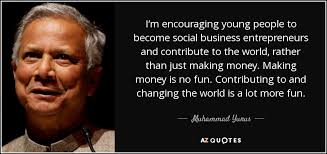 I’ve devoted most of my life to working for the poorest people, particularly the poorest women, trying to remove the hurdles they face in their efforts to improve their lives. Through the tool known as microcredit, Grameen Bank, which I launched in my home country of Bangladesh in 1976, makes capital available to poor villagers, especially women. Microcredit has since unleashed the entrepreneurial capabilities of over 300 million people, helping to break the chains of poverty and exploitation that have enslaved them..
I’ve devoted most of my life to working for the poorest people, particularly the poorest women, trying to remove the hurdles they face in their efforts to improve their lives. Through the tool known as microcredit, Grameen Bank, which I launched in my home country of Bangladesh in 1976, makes capital available to poor villagers, especially women. Microcredit has since unleashed the entrepreneurial capabilities of over 300 million people, helping to break the chains of poverty and exploitation that have enslaved them..
The impact of microcredit in enabling millions of people to lift themselves out of poverty helped to expose the shortcomings of a traditional banking system that denied it’s services to those who needed it most – the world’s poorest people. This is just one of many interrelated problems suffered by the poor: lack of institutional services, lack of clean drinking water and sanitary facilities, lack of health care, inadequate education, substandard housing, no access to energy, neglect in old age, and many more. And these problems are not restricted to the developing world. In my global travels, I’ve found that low-income people in the world’s richest nations are suffering from many of the same problems. In the words of Angus Deaton, a Nobel Prize-winning economist, “If you had to choose between living in a poor village in India and living in the Mississippi Delta or a suburb of Milwaukee in a trailer park, I’m not sure who would have the better life.”
The Rising Tide of Wealth Concentration
The troubles plaguing poor people throughout the world reflect an even broader economic and social problem – the problem of rising inequality caused by continuous wealth concentration.
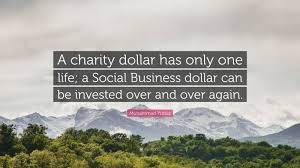
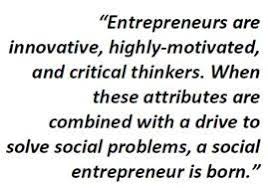 Inequality has been a hot subject in politics for ages. Many powerful political and social movements and many ambitious initiatives have been launched in recent years that attempt to address this problem. Much blood has been shed over the issue. But the problem is far from being solved as ever. In fact, plenty of evidence shows that, in recent decades, the problem of the ever-expanding gap in individual wealth has been getting worse. As the economy grows, so does the concentration of wealth. This trend has continued and even accelerated despite the positive effect of national and international development programs, income redistribution problems, and other efforts to alleviate the problems of low-income people. Microcredit and other programs have helped many lift themselves out of poverty, but at the same time the riches have continued to claim a greater share of the world’s wealth.
Inequality has been a hot subject in politics for ages. Many powerful political and social movements and many ambitious initiatives have been launched in recent years that attempt to address this problem. Much blood has been shed over the issue. But the problem is far from being solved as ever. In fact, plenty of evidence shows that, in recent decades, the problem of the ever-expanding gap in individual wealth has been getting worse. As the economy grows, so does the concentration of wealth. This trend has continued and even accelerated despite the positive effect of national and international development programs, income redistribution problems, and other efforts to alleviate the problems of low-income people. Microcredit and other programs have helped many lift themselves out of poverty, but at the same time the riches have continued to claim a greater share of the world’s wealth.
The trend towards ever-increasing wealth concentration is dangerous because it threatens human progress, social cohesion, human rights, and democracy. A world in which wealth is concentrated in a few hands is also a world in which political power is controlled by a few and used by them for their own benefit.
As wealth concentration increases within countries, it also increases between nations. So even as millions of poor people work to lift themselves out of poverty, the bulk of the world’s wealth continues to be concentrated in half a dozen countries.
As the wealth gap and the power gap grow, mistrust, resentment and anger inevitably deepen, pushing the world towards social upheaval and increasing the likelihood of armed conflict between nations.
Oxfam is an international confederation of eighteen non-profit organizations that are focused on the alleviation of global poverty. Experts at Oxfam have been studying the problem of increasing wealth concentration. The data they have uncovered are truly horrifying.
In 2010, Oxfam reported that the world’s richest 388 people owned more wealth than the entire bottom half of the world population – a group that included an estimated 3.3 billion human beings. At the time, this was considered a startling statistic, and it was reported as such around the world. But in the years since then, the problem has become uch worse. In January 2017, Oxfam announced that the ultra-privileged group that owns wealth exceeding that of the bottom of the world’s population has shrunk to just eight people – even as the number of people in the bottom half has grown up to 3.6 billion. Newspapers published the pictures of these eight people. They are well-known, well-respected people – American business leaders like Bill Gates, Warren Buffet, and Jeff Bezos, as well as a few from other countries, such as Amancio Ortega of Spain and Carlos Slim Helu of Mexico.
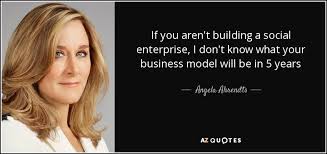
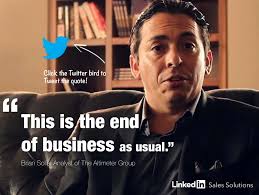 This information is so unbelievable that it takes time to absorb. We feel like asking many more questions. What happens to the social fabric in a country where a handful of people control the bulk of the national wealth, what is to prevent that person from imposing his will on the nation? Implicitly or explicitly, his wishes will become the law of the land.
This information is so unbelievable that it takes time to absorb. We feel like asking many more questions. What happens to the social fabric in a country where a handful of people control the bulk of the national wealth, what is to prevent that person from imposing his will on the nation? Implicitly or explicitly, his wishes will become the law of the land.
It could easily happen in a low-income country like Bangladesh. But we now realize it can also happen in a wealthy country like the United States. In his 2016 presidential campaign, Senator Bernie Sanders frequently pointed out that the richest 0.1 percent of Americans own as much wealth as the bottom 90 percent – a claim supported by solid research data from sources like the nonpartisan National Bureau of Economic Research. He also pointed out that the Walton family of Wal-Mart has more wealth than the bottom 40 percent of the US population – another claim that research by unbiased fact-checkers has supported.
It is dangerous for a country to allow so much wealth and power to be concentrated in a few hands. Perhaps it’s not surprising that the US presidential race ended with the election of a man with practically no credentials as a national leader other than his vast personal wealth.
How Capitalism Breeds Inequality
Many specific features of today’s financial and political landscape have contributed to the problem of wealth concentration. But the basic reality is that wealth concentration is an all-but inevitable, nonstop process under the present economic system. Contrary to one popular belief, the riches people are not necessarily evil manipulators who have rigged the system through bribery or corruption. In reality, the current capitalist system works on their behalf. Wealth acts like a magnet. The biggest magnet naturally draws smaller magnets toward it. That’s how the present economic system is built. And most people give this system their tacit support. People envy the very rich, but they don’t usually attack them. Young children are encouraged to try to become wealthy themselves when they grow up.
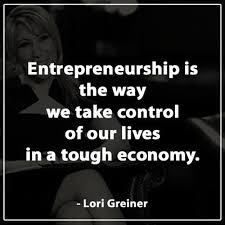
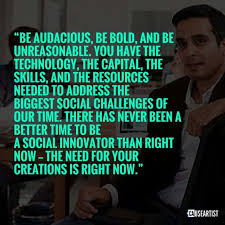
By contrast, poor people – people with no magnet – find it difficult to attract anything to them. If they somehow manage to acquire a tiny magnet of their own, retaining it is difficult. The bigger magnets exert an almost irresistible attraction. Unidirectional forces of concentration keep changing the shape of the wealth graph, making it a wall rising to the sky at the highest percentile of the wealth scale while the columns for the rest of the population barely rise above the ground.
Such a structure is unsustainable. Socially and politically, it is a ticking time bomb, waiting to destroy everything we have created over the years. Yet this is the frightening reality that has taken shape around us while we were busy with our daily lives, ignoring the writing on the wall.
This is not what the promoters of the traditional vision of capitalism taught us to expect. Since the appearance of modern capitalism some 250 years ago, the concept of the free market as a natural regulator of wealth has come to be widely accepted. Many of us have been taught that an “invisible hand” ensures competition in the economy, contributing to equilibrium in the markets and generating social benefits that are automatically shared by everyone. Free markets dedicated solely to profit are supposed to produce improved living conditions for all.
Capitalism has indeed stimulated innovation and economic growth. But in a world of skyrocketing inequality, more and more people are asking, “Does the invisible hand produce it’s benefits for everybody in the society?” The answer seems obvious. Somehow the invisible hand must be heavily biased towards the riches – otherwise, how could today’s enormous wealth concentration continue to grow?
Many of us were raised to believe in the slogan “Economic growth is a rising tide that lifts all boats”. The saying ignores the plight of the millions who are clinging to leaky rafts – or who have no boats at all.
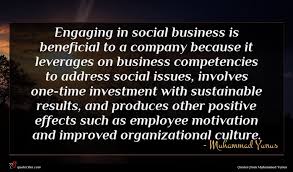
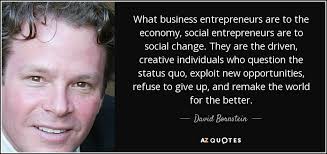
In his best-selling book Capital in the Twenty-First Century (Harvard University Press, 2014) economist Thomas Piketty provided an exhaustive analysis of the tendency of contemporary capitalism to increase economic inequality. His diagnosis of the problem stimulated debate around the world. Piketty was fundamentally correct about the nature of the problem. But his proposed solution, which relies mainly on the usage of progressive taxation to remedy income imbalances, was not equal to the task.
A more fundamental change in the way we think about economics is necessary. It’s time to admit the neoclassical vision of capitalism offers no solution to the economic problems that we face. It has produced amazing technological advances and huge accumulations of wealth but at the cost of creating massive inequality and the terrible human problems that inequality fosters. We need to abandon our unquestioning faith in the power of personal of personal-profit-centered markets to solve all problems and confess that the problems of inequality are not going to be solved by the natural working of the economy as it is currently structured. Rather, the problems will become more and more acute very fast.
This is not just a problem that affects the “losers” in the game of capitalist consumption – who are in fact the over-whelming majority of the world’s population. It impacts the national and global social and political environment, economic progress, and quality of life for us all – including those in the wealthy minority.
The rise of inequality has led to social unrest, political polarization, and growing tensions among groups. It underlay phenomena as varied as the Occupy movement, the Tea Party, and the Arab Spring; the passage of Brexit in the United Kingdom; the election of Donald Trump; and the rise of right-wing nationalism, racism and hate groups in Europe and the United States. People who feel disinherited and left without prospects for the future have become increasingly disenchanted and angry.
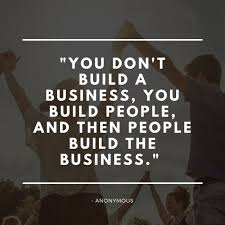
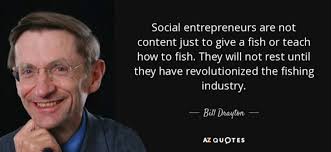 Our world has become sharply divided between the haves and the have-nots – two groups with little in common except a mutual sense of distrust, fear, and hostility. This distrust will only become more pronounced as information and communication technologies continue to spread among the bottommost segment of the population, making them even more aware of how unfairly the cards have been stacked against them.
Our world has become sharply divided between the haves and the have-nots – two groups with little in common except a mutual sense of distrust, fear, and hostility. This distrust will only become more pronounced as information and communication technologies continue to spread among the bottommost segment of the population, making them even more aware of how unfairly the cards have been stacked against them.
This is not a comfortable situation for anyone, including those who are on top of the social heap at any given time. Do the wealthy and the powerful enjoy life behind the bars of gated communities, hiding from the realities of existence as the 99 percent experience it? Do they like having to avert their eyes from the homeless and hungry people they pass on the street? Do they enjoy using the tools of the state – including its police powers and other forms of coercion – to suppress the inevitable protests mounted by those on the bottom? Do they really want their children and grandchildren to inherit this kind of world?
I think that for most wealthy people, the answer is no.
I don’t think rich people became rich because they are bad people. Many of them are good people who simply made use of the existing economic system to reach the top of the ladder. And many of them share the widespread feeling of uneasiness over living in a world that is sharply divided between rich and poor.
One piece of evidence is the large sums of money people donate to charitable causes, either in the form of individual gifts to non-profit organizations or through philanthropic foundations. People give away hundreds of billions of dollars to charities every year. Even most corporations, while their leaders may pay allegiance to the doctrine that profit maximization is the only valid function of business, siphon off a percentage of their profits to community service projects and charitable gifts in the name of “social responsibility”.
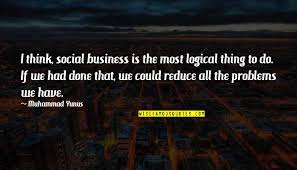
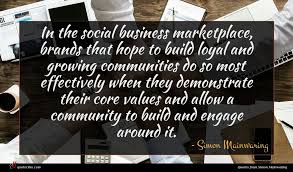
Furthermore, practically every society dedicates a significant portion of its tax revenues to welfare programs that fund health care, food assistance, housing aid, and other of giving to improve the lot of the poorest among us. These efforts are often inadequate and poorly designed. But their very existence reflects the fact that most members of society feel a genuine obligation to do something to reduce the extreme inequality that leaves so many millions without the resources necessary for a secure and fulfilling life.
Charity and welfare programs are well-intended efforts to lessen the damage done by the capitalist system. But a real solution requires a change in the system itself.
Capitalist Man Versus Real Man
The systemic problem starts with the assumptions we make about human nature. Indifference to other human beings is deeply embedded
in the current conceptual framework of economics. The neoclassical theory of economics is based on the belief that a human-being is basically a personal-gain-seeking being. It assumes that that maximising personal profit is the core of economic rationality. This assumption encourages a form of behaviour towards other human beings that deserve to be described by far harsher words than mere “indifference” – words like greed, exploitation, and selfishness. According to many economic thinkers, selfishness is not even a problem; it is, in fact, the highest virtue of Capitalist Man.
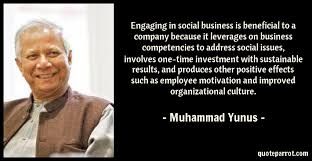
I for one would not like to live in a world where selfishness is the highest virtue. But the deeper problem with economic theory is that it is so sharply divorced from reality. Thankfully, in the real world, almost no one behaves with the absolute selfishness that is supposed to govern Capitalist Man. And while we are discussing Capitalist Man, we may ask whether this expression is also supposed to refer to Capitalist Woman. Are they the same? Or should we create a Real Person to represent both?
The real Person is a composite of many qualities. He or she enjoys and cherishes relationships with other human beings. Real People are sometimes selfish, but just as often they are caring, trusting and selfless. They work not only to make money for themselves but also to benefit others; to enhance society; to protect the environment; and to help bring more joy, beauty and love into the world.
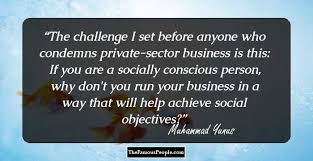
Plenty of evidence proves the existence of these altruistic drives. If they did not, no one would take on the difficult jobs that make our world a better place. The fact that millions of people around the world choose to be schoolteachers, social workers, nurses, and fire-fighters when other opportunities for making a comfortable living are available to them proves that selfishness is not a universal value. The fact that millions of other people work to help others in their communities as social activists, non-profit workers, volunteers, counsellors, and mentors offers further evidence.
Even in the world of business, where you might assume that Capitalist Man reigns supreme, the virtues of selflessness and trust plays a vital role. A clear example is that of Grameen Bank in Bangladesh. The entire bank is built on trust. No collateral is requested, no legal documents are demanded, no proof of “creditworthiness” is required. Most of the borrowers are illiterate and have no assets; many have never even handled money before. They are women who once had no place in the financial system. The idea of lending money to them to start their own businesses was considered crazy by conventional bankers and economists.
In fact, the entire system of Grameen Bank was regarded as impossible.
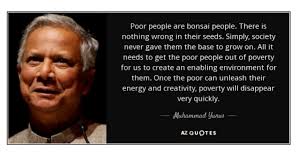
Yet today, Grameen Bank lends out over US$ 2.5 billion a year to 9 billion poor women on the basis of trust only. It enjoys a repayment rate (as of 2016) of 98.96 percent. And microcredit banks that run on the same principle are operating successfully in many other countries, including the United States. For example, Grameen America has nineteen branches in twelve US cities with 86,000 borrowers, all women, who receive business start-up loans averaging around US$1,000. As of 2017, the loans disbursed by Grameen America total over US$600 million, and the repayment rate is over 99 percent.
If human beings truly fit the mould of Capitalist Man, the borrowers from these trust-based banks would simply default on their loans and keep the money. As a result, Grameen Bank would quickly cease to exist. Its long term success demonstrates the fact that Real Man is a very different – and much better – creature than Capitalist Man.
Nonetheless, many economists, business leaders, and government experts continue to think and act as if Capitalist Man is real, and as if selfishness is the only motivation behind human behaviour. As a result, they perpetuate economic, social and political systems that encourage selfishness and make it more difficult for people to practice the selfless, trusting behaviour millions of them instinctively prefer.
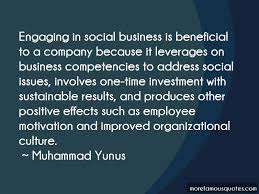
Consider, for example, the measurement systems we have created to gauge economic growth. Gross domestic product (GDP) measures the monetary value of all the finished goods and services produced within a country’s borders in a specific time period. GDP is carefully measured by government agencies and widely reported in the news media. It is often treated as a measurement of the success of a country’s economic system. Governments have even fallen as a result of perceived shortfalls in GDP growth.
Yet human society is an integrated whole. It consists of much more than the economic activity measured by GDP. Its success or failure should be measured in a consolidated way, not purely on the basis of an aggregate of narrowly selected economic information about individual performance.
GDP does not and cannot tell the whole story. Activities that do not require money changing hands are not counted as part of GDP – which means that, in effect, many of the things real human beings cherish most are treated as having no value. By contrast, money spent on weapons of war and other activities that harm people’s health or despoil the environment are counted as part of GDP; despite that fact that they produce suffering and contribute nothing to human happiness.
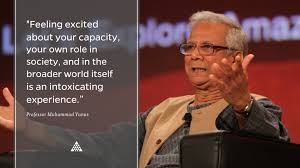
GDP may accurately measure the selfish behaviour of Capitalist Man. But it does not capture the success of Real Man. We need some new form of measurement to do that. Perhaps we should explore ways to calculate a new measurement of GDP that “nets out” the harms done to human beings. This will be a GDP minus behaviour that harms human beings, and prevent them for fulfilling their potential – poverty, unemployment, illiteracy crime, violence, racism, oppression of women, and so on. Obviously there will be challenges in accurately defining and measuring this new “net GDP”, but we shouldn’t abandon the idea just because it is difficult. Why settle for a measurement that is easy to calculate but leads the world to an inaccurate assessment of its economic health.
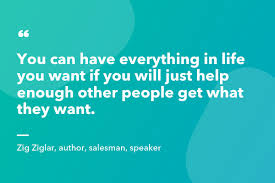 Misleading measurement systems are just one symptom of the problems caused by our flawed economic thinking. Another is our failure to channel technological and social changes so that they benefit all people rather than a chosen few. The last half century has seen a dramatic expansion of global trade and economic integration, thanks to improvement in transportation, communication, and information technology, as well as the gradual reduction of political and social barriers. This new era of globalization should have led to the creation of a global human family enjoying greater closeness, harmony and friendship than ever before. But in practice, globalization has also generated enormous tension and hostility. It is placing people and nations in a confrontational posture, each striving to enhance its own selfish interests. The zero-sum assumption built into our economic theory encourage people to become “winners” in the economic battle – which requires turning everybody else into “losers.”
Misleading measurement systems are just one symptom of the problems caused by our flawed economic thinking. Another is our failure to channel technological and social changes so that they benefit all people rather than a chosen few. The last half century has seen a dramatic expansion of global trade and economic integration, thanks to improvement in transportation, communication, and information technology, as well as the gradual reduction of political and social barriers. This new era of globalization should have led to the creation of a global human family enjoying greater closeness, harmony and friendship than ever before. But in practice, globalization has also generated enormous tension and hostility. It is placing people and nations in a confrontational posture, each striving to enhance its own selfish interests. The zero-sum assumption built into our economic theory encourage people to become “winners” in the economic battle – which requires turning everybody else into “losers.”
So we live with a philosophical paradox. Many economic theorists, journalist and pundits, and political leaders continue to proclaim that free-market capitalism is a perfect mechanism that only needs to be fully unleashed to solve all of humanity’s problems. Yet at the same time or society tacitly confesses the shortcomings of the free-market and channels billions of dollars every year towards remedial efforts. Unfortunately, these efforts are largely ineffective – as the continued concentration of wealth in a few hands and its painful effects on all of us makes clear.
A Redesigned Economic Engine
Deep in our hearts, we all recognize that the old dreams of the economic theorist have been exposed as fairy tales. The existing capitalist engine is producing more damage than solution. It needs to be redesigned piece by piece – or replaced by an entirely new engine.
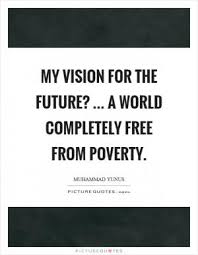
My experience with Grameen Bank has helped me to imagine what such a redesigned engine might look like. I launched the bank without having any ambitious goals; I simply wanted to make life a little better for poor women in the villages of my home country. But over the past few decades I have increasingly found myself engaged in redesigning the economic engine and trying out the new model in the real world. I’ve been very happy to see how effectively it addresses the problems created by the old engine.
The redesigned economic engine has three basic elements. First, we need to embrace the concept of social business – a new form of enterprise based on the human virtue of selflessness. Second, we need to replace the assumption that human beings are job seekers with the new assumption that human beings are entrepreneurs. Third, we need to redesign the entire financial system to make it work efficiently for the people at the bottom of the economic ladder.
Thousands of people around the world have joined the effort to build a new version of capitalism. Hundreds of social businesses have been established around the world, in addition to the ones I have created in Bangladesh since Grameen Bank, to address the problems that traditional capitalism has created.
In the chapters that follow, I’ll describe these experiences and the lessons they offer about the enormous potential of fresh economic thinking to transform human society. If we are willing to reconsider the assumptions underlying neoclassical economics, we can develop a new economic system designed to truly serve the needs of real human being, creating a world in which everybody has the opportunity to fulfil his or her creative potential.
—————————————————————————————————————————————————————————————–
I have presented above Chapter 1 of the book “ A World Of Three Zeroes: The New Economics Of Zero Poverty, Zero Unemployment, And Zero Net Carbon Emissions”, by Muhammad Yunus, Winner of the Nobel Peace Prize 2006.
I strongly recommend that you buy and read this excellent book. It is available on Amazon.in
Muhammad Yunus’s Top 10 Rules For
Success (@Yunus_Centre)
Muhammad Yunus – Banker to the Poor
A history of microfinance | Muhammad Yunus | TEDxVienna
A World of Three Zeros | Muhammad Yunus |
Talks at Google
Grameen Bank at a Glance
Prof. Muhammad Yunus: A World of Three Zeros – The New Economics of Zero Poverty
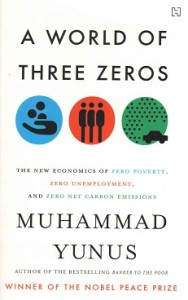
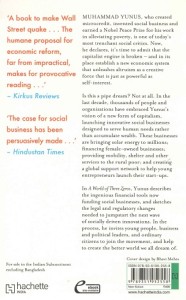
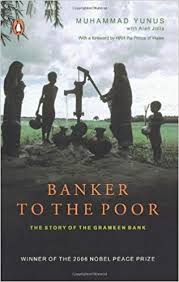
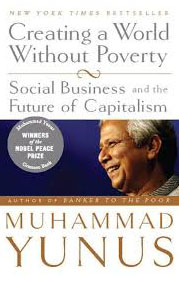
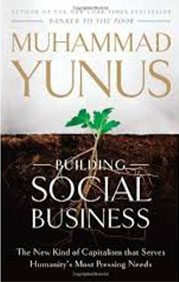
One thought on “A World of Three Zeros”